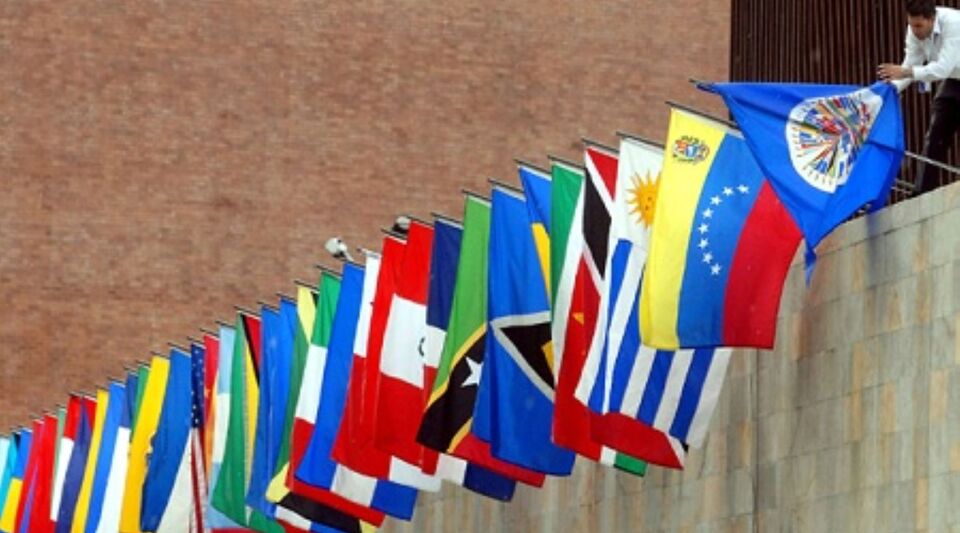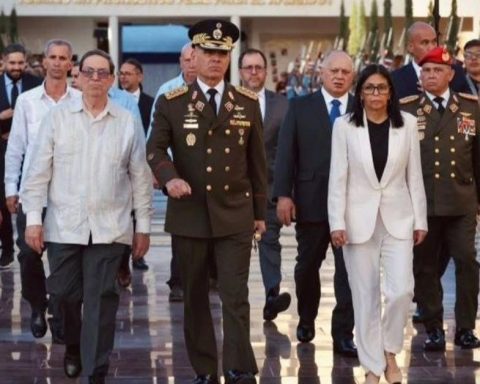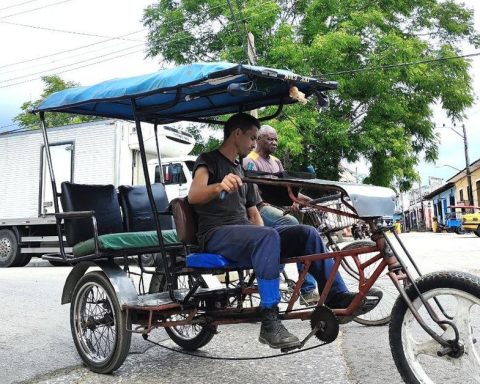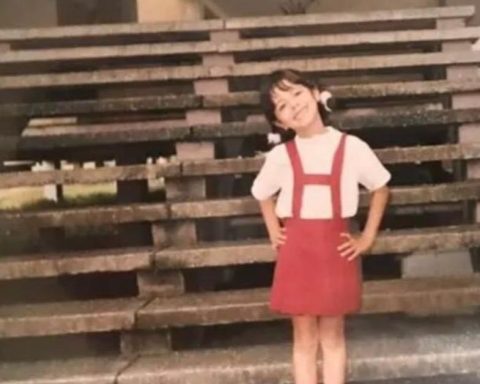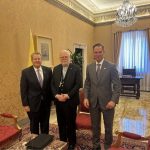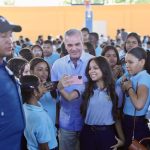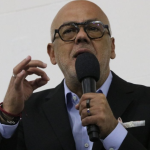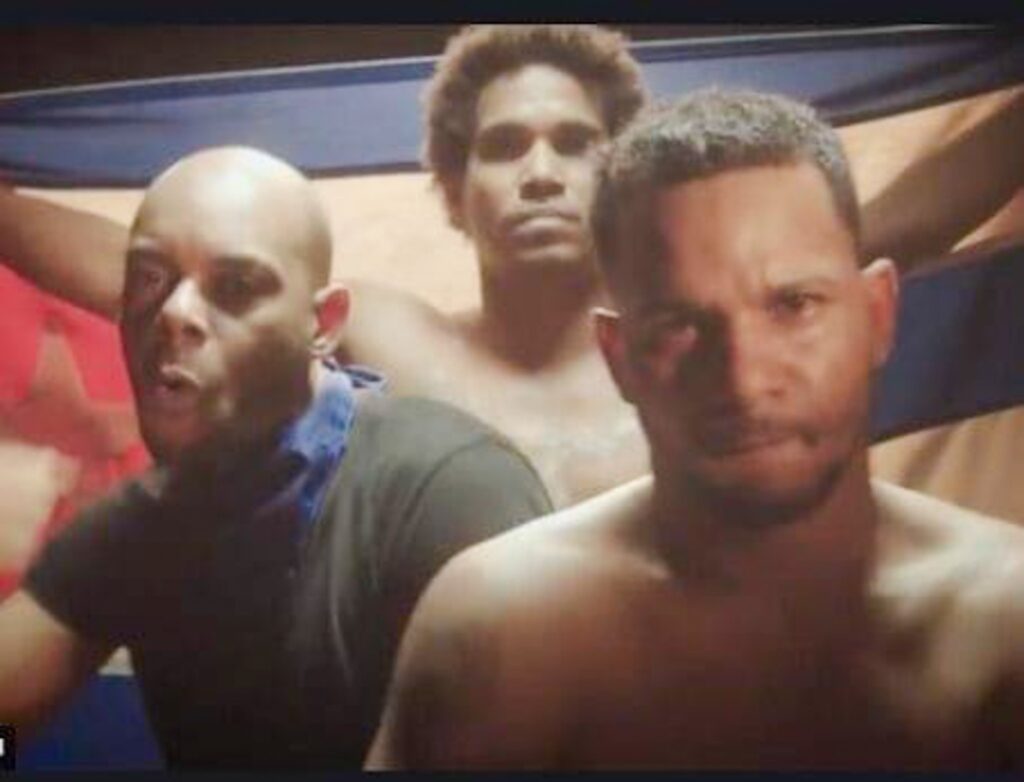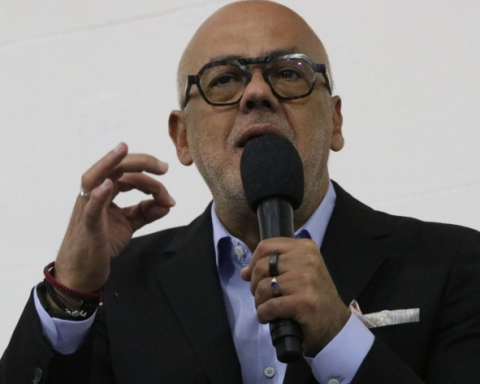The most recent campaign of the Cuban regime against the US is focused on the Summit of the Americas. Havana has multiplied in recent weeks the pressure to get the support of the continent in the face of its possible, although not yet confirmed, exclusion from the event, which this year is organized in Los Angeles, between June 6 and 10.
This Monday, self-appointed representatives of Cuban civil society met in a forum in Havana that closed with a statement in which they affirm that their registration in the Ninth Civil Society Forum, which is being held within the framework of the event, has been rejected. official. The event is, together with the Sixth Youth Forum of the Americas and the Fourth Forum of Corporate Directors of the Americas, one of the activities that are part of the official Summit and is not related to the People’s Summit for Democracy, an alternative meeting of leftist organizations in which 23 Cubans who had applied for a visa will not be able to participate.
Last week, the organization of that meeting and the Cuban authorities accused the United States of denying them permission, although their consulate on the Island later rejected the accusations and stated that, as is known, it has not been granting these documents normally since its services were relocated to Guyana by decision of the previous Donald Trump Administration and due to the health problems known as Syndrome of Havana suffered by US officials.
Cuba had participated in this Civil Society Forum in the previous meetings of Panama, in 2015, and Lima, in 2018
Cuba had participated in this Civil Society Forum in the previous meetings in Panama, in 2015, and Lima, in 2018, when the Government was invited to the Summit of the Americas for the first and second time in history. In the case of the Panamanian event, there were incidents between the independent civil society and the official one, represented by associations linked to the Government, since the opposite is impossible on the Island. The official group organized a meeting of repudiation their dissident compatriots, whom they shouted, among other things, “murderers”, “worms” and “mercenaries”.
According to statement signed this Monday by the III Forum of Cuban Civil Society and Social Actors, Pensando Américas, the exclusion of their organizations “demonstrates the selectivity, double standards and discriminatory and anti-democratic policies” of the organizers. The text accuses the US Government, as the host country, of breaking the principles of respect for sovereignty and non-interference in the affairs of other countries with this decision and what they insist on considering refusal to process visas. for side events.
The document also rejects the possibility of approving a health plan excluding Cuba’s contribution to the matter, “the use of information technologies to develop the media war against Cuba and subvert the constitutionally elected political, economic and social system” and the “criminal blockade, which essentially undermines the principle of equity and fairness of social policies, constitutes a massive, flagrant and systematic violation of the human rights of the entire population of the country.”
According to the text, the exclusion from the Summit of the Americas is part of the “aggressive policies and defamatory media campaigns” against Cuba to, once again, “subvert the economic, political and social system that the Cuban population (… .) has decided for himself” and therefore, those who sign it reaffirm their right to “continue building socialism”. A statement that ultimately confirms the exclusionary nature of an important part of Cuban civil society, which opposes the system and calls for change.
The US Government, in its capacity as host country, is accused of breaking the principles of respect for sovereignty
The pressures are, however, attracting a good number of supports among the governments of the continent. The most powerful have been those of Mexico and Bolivia, whose presidents, Andrés Manuel López Obrador and Luis Arce, have warned of their possible absence if Cuba, Venezuela and Nicaragua are not invited.
There is also a critical sector with these exclusions that questions their presence without theirs. In that group are the Argentine Alberto Fernandez and the Honduran Xiomara Castro. The Chilean Gabriel Boric and the Panamanian Laurentino Cortizo will not miss the event, but they have strongly expressed themselves in favor of all the countries of the continent being invited. And among the 15 members of the Caribbean Community (Caricom) there is no common agreement, after at least two meetings. The Prime Minister of Trinidad and Tobago, Keith Rowley, and the President of Guyana, Irfaan Ali, will be there, but there are countries that are seeking a joint position that rejects the absence of Havana, Caracas and Managua.
Faced with such a scenario, the US continues to seek ways to protect the Summit of the Americas from an image of division. This Monday, an official from the Biden Administration told Agence France Presse that the first tranche of invitations came out last week and “options on how to better incorporate the voices of the Cuban, Venezuelan and Nicaraguan peoples in the Summit process are being evaluated.” “.
The US announced last April that it had no plans to invite non-democratic countries to the main continental event, in which migration is expected to be a central issue. The decision not to include Cuba, Nicaragua and Venezuela has not been definitively taken, but the statements made from the White House have taken it for granted. Last week, Washington sent an invitation to Spain to attend as an observer country and contemplates that this is the solution finally adopted for Cuba, although it is not at all clear that Havana agreed to participate with that status.
________________________
Collaborate with our work:
The team of 14ymedio is committed to doing serious journalism that reflects the reality of deep Cuba. Thank you for joining us on this long road. We invite you to continue supporting us, but this time becoming a member of our newspaper. Together we can continue transforming journalism in Cuba.
